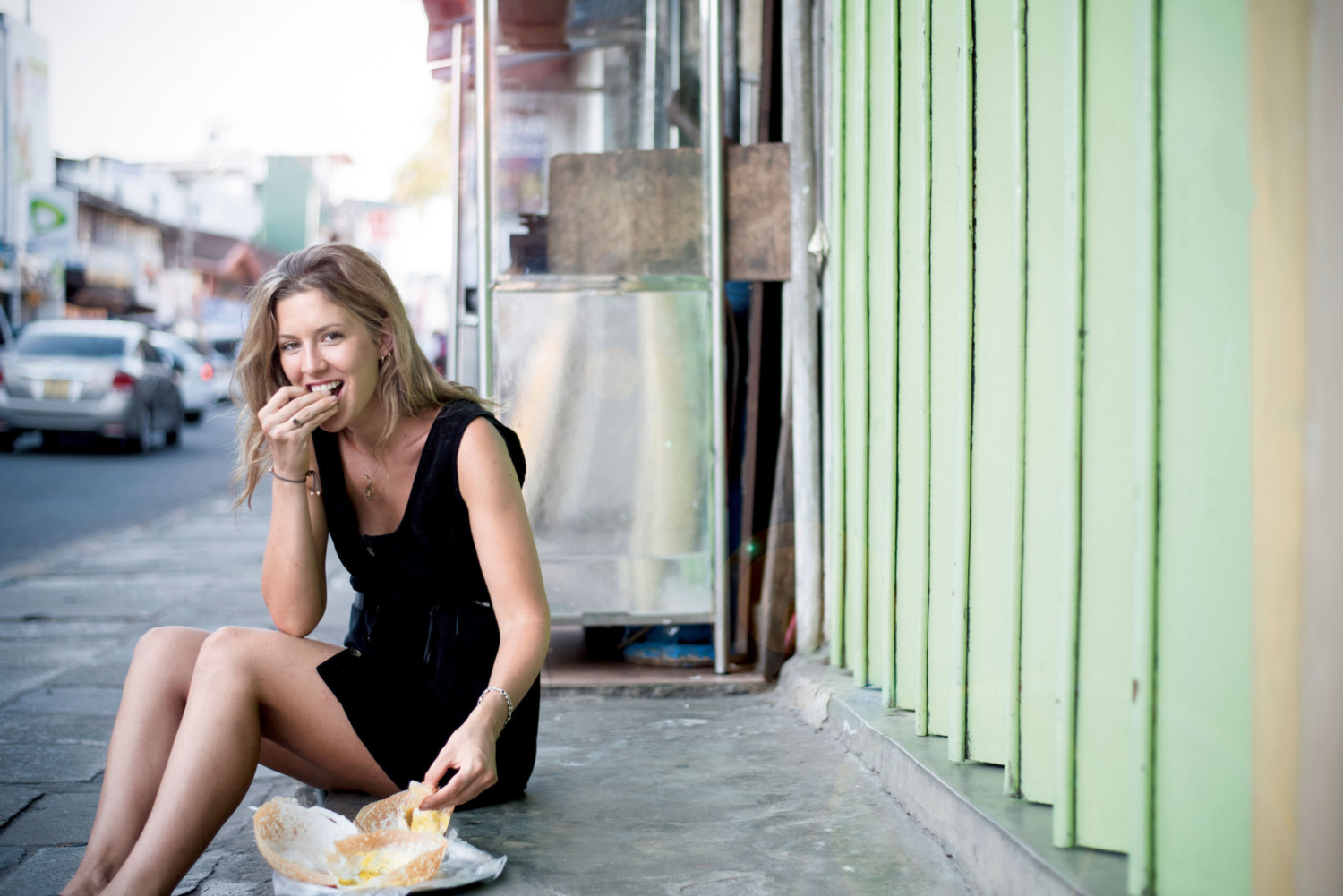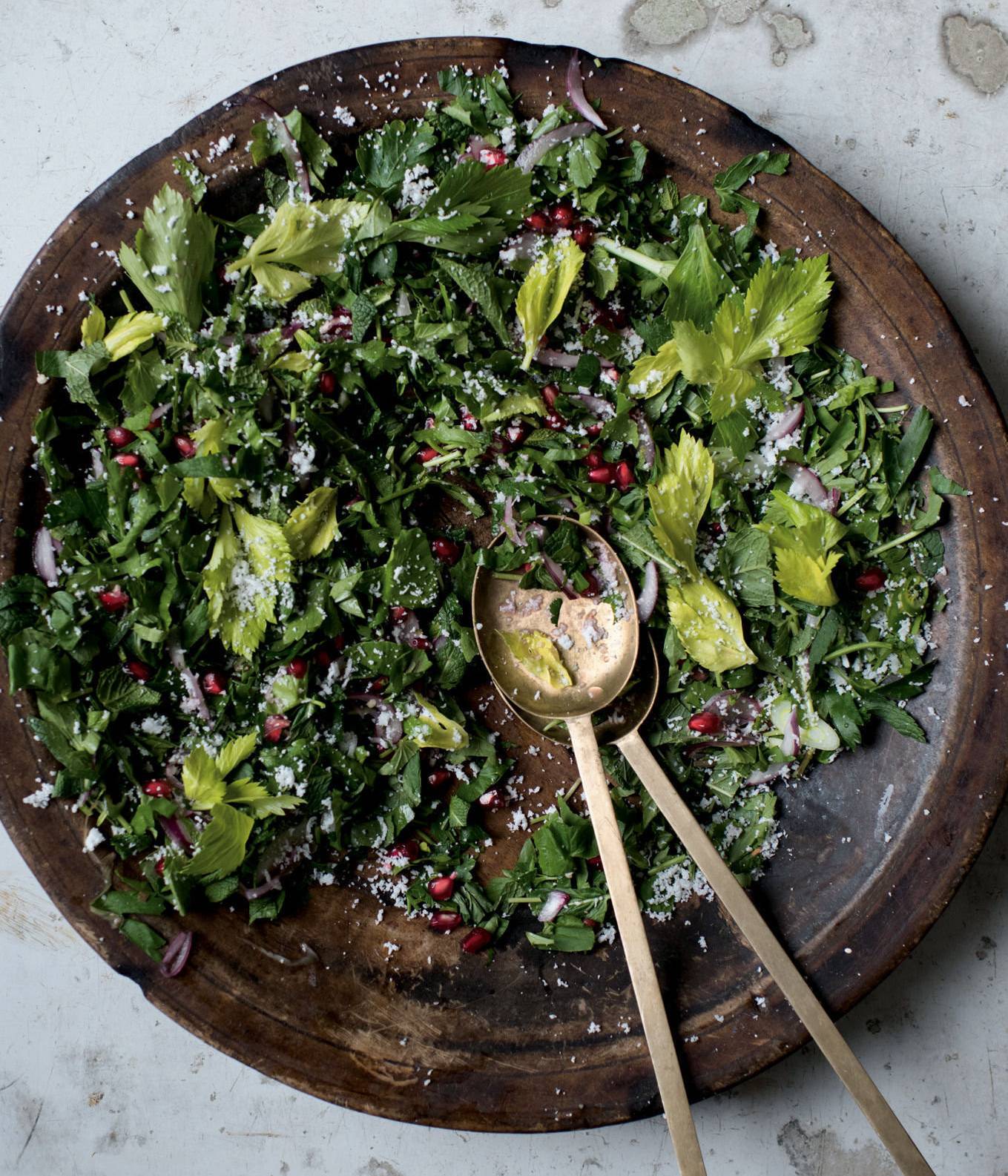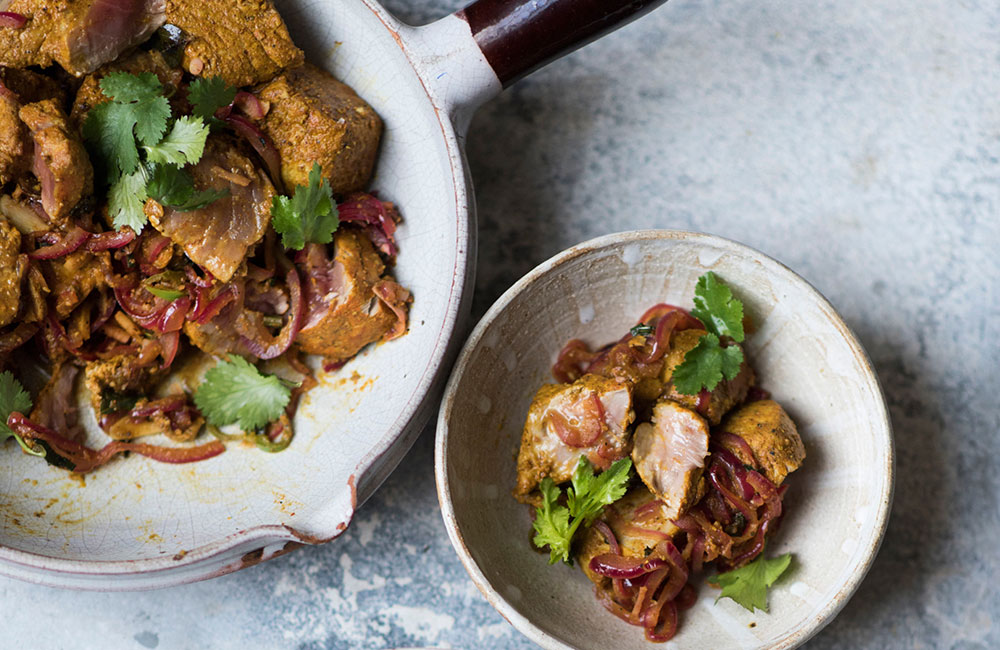Too often, the cuisines of South Asia are lumped into one pot and blandly labelled 'curry'. The nuances between Keralan and Nepalese, Bangladeshi and Pakistani food are largely ignored - especially if your only contact with them is via your local takeaway.
Until recently, Sri Lankan food was similarly neglected, but UK chef Emily Dobbs is single-handedly trying to raise its profile. With an interest in fresh, seasonal dishes, she wants to "remove the stigma that curries have to be greasy, oily and a takeaway food".
"I often have a curry with scrambled eggs and salad; they can be really light and really colourful," she enthuses.
It's time we see Sri Lankan food as a distinct cuisine

Emily made her name whipping up hoppers, selling them from her one-man market stall in south London. "Egg hoppers will become as recognisable as eggs Benedict," she says, adamant. She reckons that so far, the flavours of Sri Lanka - think turmeric, cinnamon and tamarind - have been prevented from travelling further because of the country's civil war, but that's set to change.
"People ask me why I cook Sri Lankan food, and it's because I like it," explains Emily, who started visiting her uncle in the country as a child. "The first time I ever tried avocado, it was in a sweet Sri Lankan dessert. We ate with our hands, and ate things like shark curry - everything was so exotic and exciting."
It's okay to tweak and develop traditional recipes
However, don't pick up Weligama expecting traditional recipes that have been handed down the generations. "You wouldn't get food like this in Sri Lanka - I take classic Sri Lankan recipes and British recipes and modernise them," says Emily.
By 'modernise', she means lightening and brightening dishes, and, where possible, swapping ingredients for ones you can actually find in the UK - for instance, you can't get "beetroot the size of my head" here, nor "this amazing buffalo curd yoghurt" that Emily loves, which is kept in clay terracotta pots and left out all day in the sun: "It's just really satisfying to eat."
Emily, who eventually trained at Ballymaloe Cookery School, began cooking in her early 20s, after studying for an art degree in Manchester. To tackle artist's block, she went travelling and wound up cooking to support herself. She made her first curry while working with a "hillbilly" on a ranch in Wyoming. "He would just let me cook anything," she remembers. "Thursday was my night and I'd cook curries. My granny, who's 86 and once lived in Delhi, she'd email me recipes." The recipe for the first curry she attempted, her grandmother's peas and cheese dish, is in Weligama.
"I was really experimental and inquisitive," adds Emily, recalling how at uni she'd mix turmeric with egg yolk to make paint, while in America she'd prepare beef carpaccio using meat from the cattle on the ranch, and go foraging. "Wyoming had the best rocket I've ever had, really spicy and white-dotted," she says.
Always be curious about what you're eating

Emily's egg hopper street food stall is on hiatus, but she runs supper clubs and pop-ups and dreams of running her own restaurant. "I'm always cooking, I feel my most relaxed when I'm cooking - it really calms me down," she says. "I put all my creativity into food. It's a mindful thing, it's very artistic and creative. All the colours and textures, it's how I express myself."

Leave your comments
Login to post a comment
Post comment as a guest